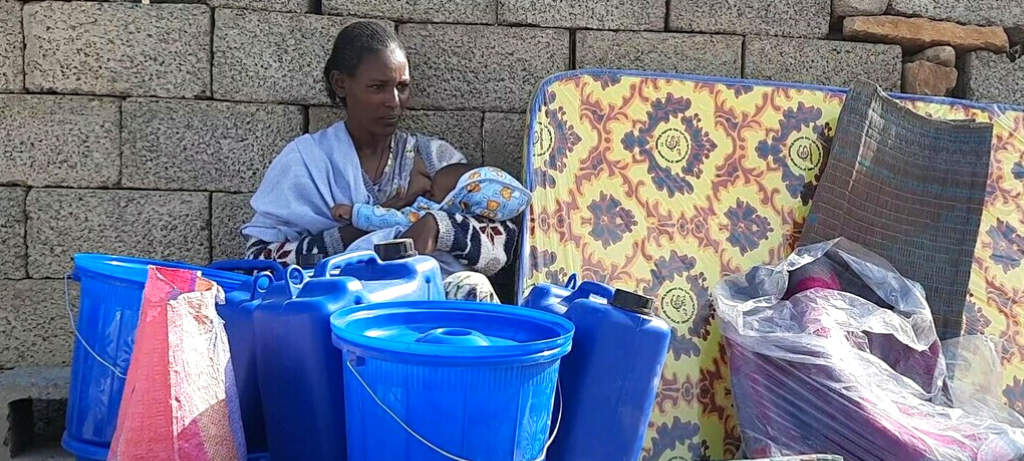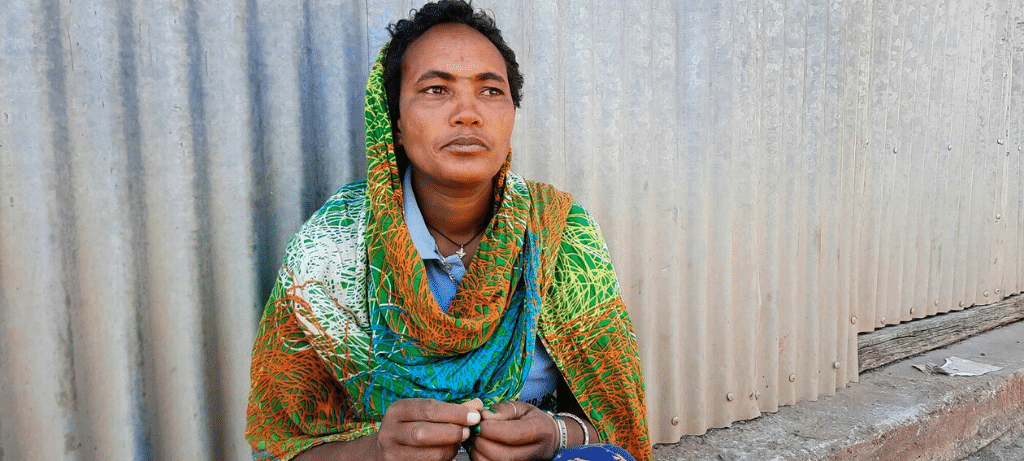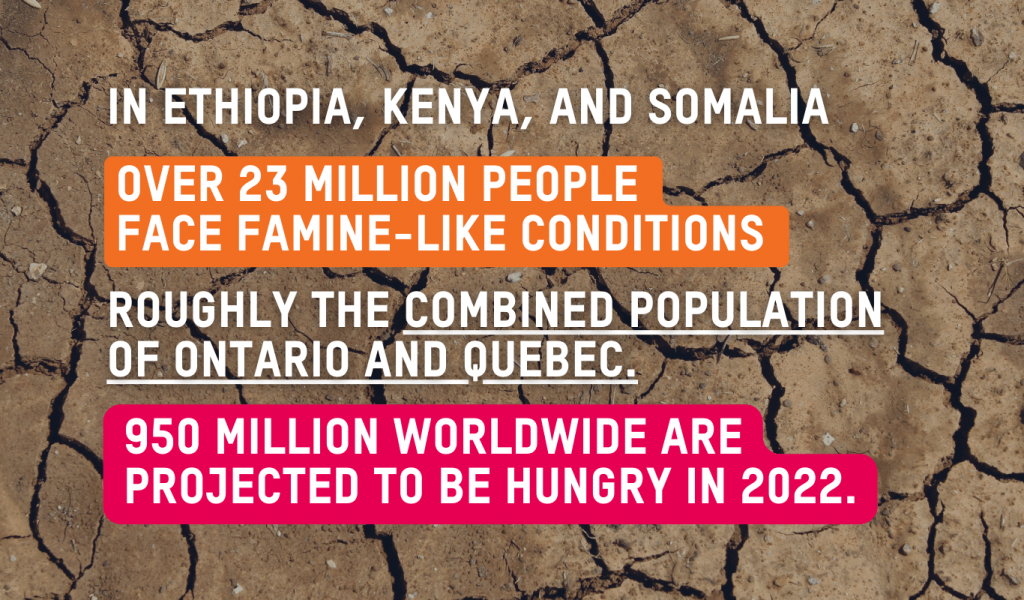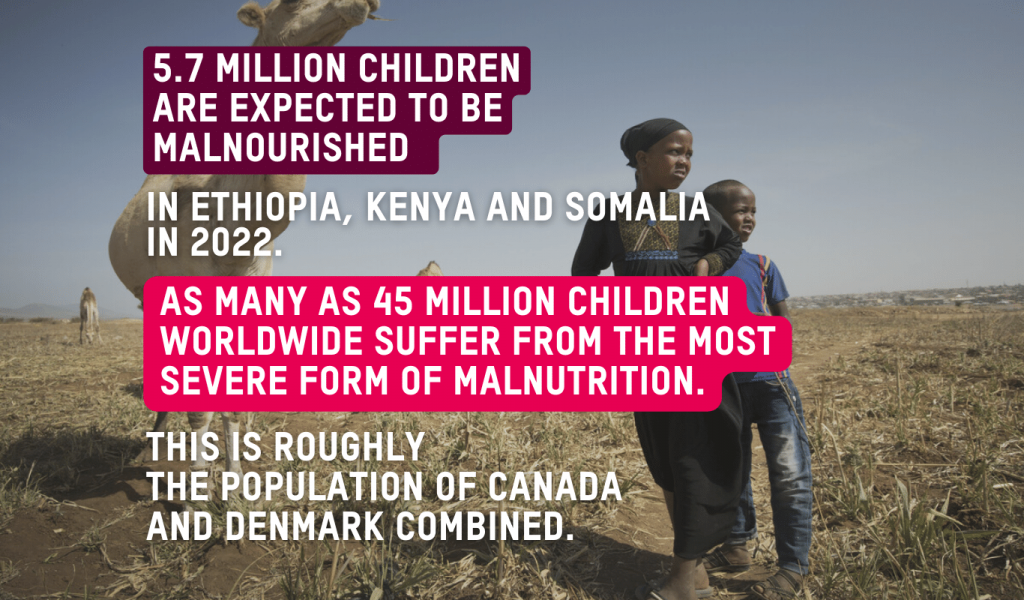How Extreme Hunger Affects Lactating Mothers and Babies in Ethiopia
Nutrition challenges are increasing in Ethiopia's Tigray region as mothers struggle to keep their babies well-fed. If we act now, we can prevent this hunger crisis from worsening.
*Names have been changed to protect identities.
At nine months pregnant, *Mulu Gebre, 26, fled her hometown in the Tigray region of Ethiopia when gunfire erupted. Shortly after arriving in Mai Megleta, a community in eastern Tigray, she gave birth.
Weeks later, determined to provide for her son, she headed to Mekele, Tigray's capital, after hearing about a food distribution centre where she believed she'd find nourishment for her increasingly hungry child. "I heard that food for infants, like Cerifam [cereal for infants] and milk, as well as diapers, are offered," she says.
When Oxfam talked to Gebre in the spring, getting humanitarian assistance into Tigray was impossible due to the violence. When she arrived in Mekele, Gebre realized there was no food for her baby or her. Now there's a ceasefire, but getting aid to those who need it most in the region is still challenging.

*Mulu Gebre gave birth to her child as she was fleeing for their safety. Now safe, she's having difficulty obtaining food for her four-month-old. Photo: Serawit Atnafu/Oxfam
Ethiopia is Africa's second-most populous country and is suffering what is now one of the world's worst humanitarian crises. Fighting between the Tigray People's Liberation Front and the government began in Ethiopia's northern Tigray region in late 2020. Oxfam reports more than nine million people need humanitarian assistance in Tigray and the neighbouring Amhara and Afar regions.
"Thanks to Oxfam, I managed to get household materials like a jerrycan, a water bucket, a washing basin, and a solar lamp for me and my child and dignity kits for me," Gebre says. "But I need nutritious food, especially for my kid, who is now only four-months-old and already born underweight."
Women and Children Bear the Brunt of the Global Hunger Crisis
Climate-induced drought, compounded by conflict and COVID-19's impacts on the economy, has driven millions of people to extreme hunger. Add the conflict in Ukraine, which has already inflated food prices to their highest level ever recorded, and access to food has become unattainable.
*Tenagne — a 29-year-old single mother from the Oromia region — found safety at a center for displaced people in the town of Ebnat in northern Ethiopia, where Oxfam is working with the Organization for Rehabilitation and Development in Amhara (ORDA) to provide water and sanitation supplies, and cash to help displaced people purchase essentials in the local market.
Through ORDA, Oxfam provided Tenagne with water and sanitation supplies, a dignity kit, and a cash transfer. While she's thankful for the support, she explains there are no supplies appropriate for children and infants.
"Breastfeeding mothers and children all eat whenever they can, sometimes they don't eat at all, or other times just once a day," Tenagne says. "It is also impossible to access formula milk for infants in the area."

In late 2021, as the conflict in the Tigray region expanded into Amhara, *Tenagne fled to escape the gunfire in her town. She walked for two days carrying her son until she arrived at a camp of displaced people in the town of Ebnat. Photo: Serawit Atnafu/Oxfam
"Dangerous Delay 2: the Cost of Inaction," a new report from Oxfam and Save the Children, warns that one person is likely to die of hunger every 48 seconds in drought-ravaged Ethiopia, Kenya, and Somalia if the international community doesn't take action. The report highlights how the global system keeps acting too slowly and too late despite all the warnings and previous experiences, like the 2011 famine that killed more than 260,000 people in Somalia.
Globally, the desperation of mothers trying to feed their families continues to grow. As the hunger crisis is raging across countries, women and children are bearing the brunt. Women face extraordinary dangers in securing food. They often eat last and least.
Children, especially girls, are usually the first to be taken out of school and the last to be fed when food runs low, making them vulnerable to exploitation.
"Rich countries like Canada have given too little too late – leaving millions of people facing catastrophic hunger," says Brittany Lambert, Oxfam Canada's Women's Rights policy specialist. "Hunger, in a world of plenty, is an avoidable tragedy and a political failure."
"We are particularly worried about women and girls," adds Lambert. "Food insecurity harms them disproportionately. It affects maternal and child health, increases gender-based violence and child marriage, and adds to their unpaid care load. Widespread hunger threatens the achievements of Canada's Feminist International Assistance Policy."
What is Oxfam Doing to Support Families and Prevent a Worsening Hunger Crisis?
Oxfam is working with local organizations to reach more than two million people across four countries: Somalia, Kenya, Ethiopia and South Sudan. Five years of seasonal flooding has displaced 350,000 people in the latter country.
In Ethiopia specifically, Oxfam is providing:
- Water, sanitation and hygiene items like soap, jerry cans, dignity kits
- Food items like wheat flour, edible oil, lentils, and salt
- Cash to displaced people from Tigray, Amhara and Afar regions
Oxfam and ORDA's joint response in the Amhara region has reached over 6,000 people with multiple cash transfers, water and sanitation products and dignity kits. Together, we've also constructed latrines, bathrooms, clean water distribution points and water tanks on both sites.
Oxfam is also advocating for humanitarian assistance while investing in programs and services that fight inequality, help people improve their lives over the long term, and reduce their vulnerability to climate change.
You can make a difference in alleviating global hunger. Donate now to support mothers in Ethiopia, like Mulu Gebre and Tenagne, and in other countries in East Africa with life-saving food and supplies.



